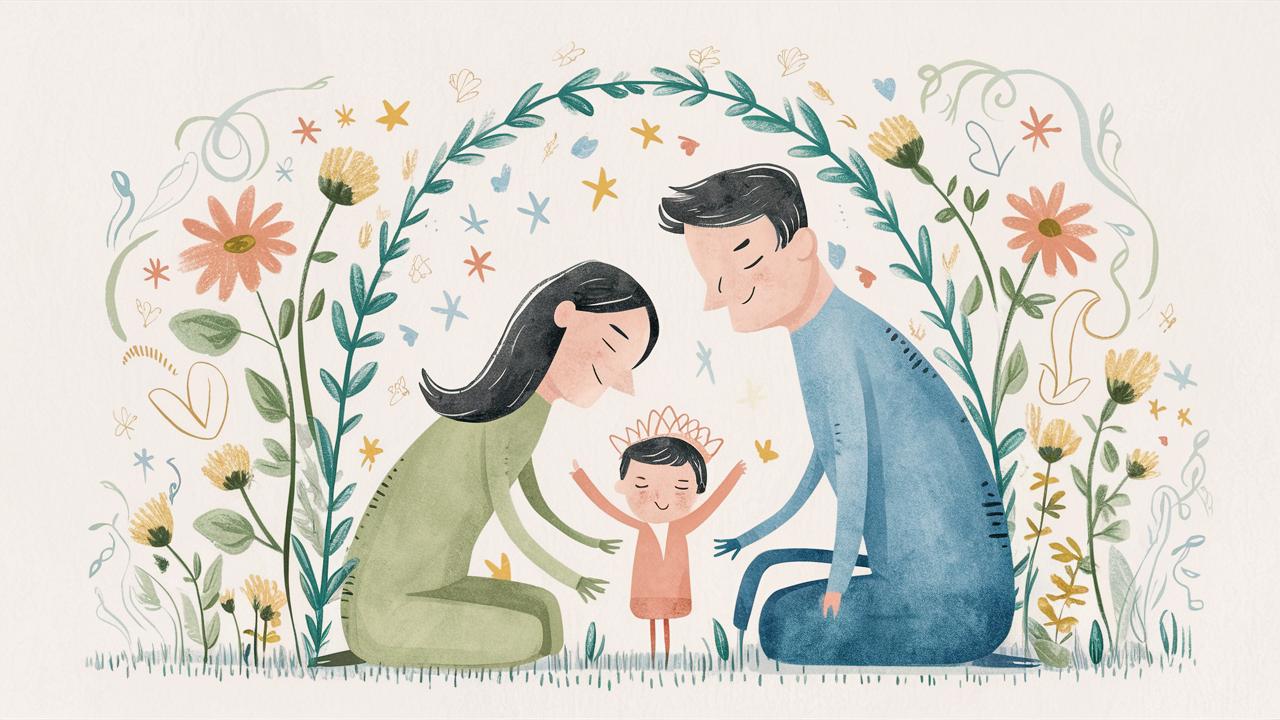
Shedding the Past, Shaping the Future: How Millennial Parents Are Breaking the Cycle.
The age-old North African proverb, « From where this tree branch? -from this Tree , » Yeah, turns out that saying applies to emotional baggage too. For generations, kids have been unwittingly inheriting not just their parents’ noses, but also their anxieties, neuroses, and the occasional questionable fashion sense. It’s like a subconscious script, written in the crayon of childhood experiences, shaping who we are and how we parent… often in ways that make future therapists chuckle.
We’re the information generation, bombarded with a constant stream of research on child development. This hyper-awareness has led us to question the very foundation of our own upbringings. Unlike previous generations, we’re not content with simply replicating the parenting styles we witnessed. This newfound knowledge has us questioning the parenting manuals we grew up with, realizing that yelling « because I said so! » might not be the most effective communication strategy (although, let’s be honest, it can be tempting in the throes of a toddler tantrum).We’re delving deeper, unearthing the emotional baggage lurking beneath the surface – the anxieties, insecurities, and coping mechanisms passed down through the family line.
This baggage often stems from complex trauma – repeated negative experiences in childhood that leave a lasting imprint. It can manifest in a multitude of ways: a constant low hum of anxiety, a crippling fear of failure, or the ever-present voice of self-criticism. The turning point comes when we recognize these patterns not as inherent flaws, but as echoes of our own past. We see how our snap reactions to our children – the dismissive « get over it » during a meltdown, the overreaction to a minor setback – might be rooted in unresolved childhood wounds.
The « aha moment » arrives when we recognize these patterns not as character flaws, but as echoes of our own past. We see how our knee-jerk reactions to our kids – the passive-aggressive sigh when they « accidentally » spill juice on the new rug for the third time this week, the urge to launch into a lecture about the Great Depression when they complain about their broccoli – might be rooted in unresolved childhood issues. Think of it as a parenting superpower: the ability to trace your annoyance at your child’s Lego-building frenzy back to your own competitive dodgeball trauma in elementary school.
Now, picture this: it’s morning mayhem. Your six-year-old is having a full-blown meltdown because you dared to suggest they wear pants that aren’t adorned with a cartoon unicorn. Your primal instinct might be to channel your inner drill sergeant (thanks, Dad!), but here’s the millennial twist. You validate their feelings (« Look, I get it, those pants are EPIC. But maybe for a sleepover, not school? »). You explain your own anxieties (« Mommy needs a little peace before facing rush hour traffic. Unicorns are powerful creatures, after all. »). Most importantly, you open a dialogue (« Hey, how about we pick out some super cool socks to make up for it? »). This shift from meltdown shut-down to a collaborative sock-selection mission? That’s the millennial parenting revolution in action, baby!
The stakes are high, folks. We’re not just raising rugrats; we’re shaping the emotional landscape of future generations. Here’s the (slightly tongue-in-cheek) vision driving this movement:
Raising Empathetic Empaths: We want our children to be walking empathy factories, able to feel the feels of others like emotional ninjas. Imagine a world where everyone cries during sad dog movies – that’s our dream!
Empowering Inner Weirdos: We encourage them to embrace their quirks and celebrate their individuality, because frankly, a world full of beige khakis is just depressing.
Building Mini-Activists: We reject narrow-mindedness and champion inclusivity, teaching them to fight for what’s right, even if it’s the right to wear mismatched socks (a small battle, but an important one).
Nurturing Independent Thinkers: We believe in critical thinking and individuality, encouraging them to question everything, from why the sky is blue to why broccoli even exists.
Self-Love Champions: We prioritize healthy self-esteem, teaching them the importance of self-care and boundaries. Because let’s face it, nobody has the energy for emotional baggage when you’re busy building a pillow fort of self-love.
Breaking the cycle of generational trauma is like trying to untangle a Christmas light mess – frustrating, but ultimately rewarding. It requires introspection, vulnerability, and the willingness to laugh at ourselves (because seriously, who decided yelling at clouds was a good coping mechanism?). But millennial parents are armed with a powerful weapon: self-awareness. We’re the generation that understands the impact of childhood experiences. We’re the generation that dares to dream of a future where emotional baggage becomes a relic of the past, replaced by a legacy of laughter, empathy, and enough therapy to make Sigmund Freud proud. This isn’t just about raising awesome kids; it’s about weaving a brighter tapestry for generations to come.

